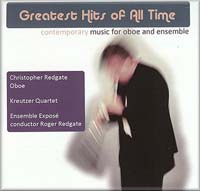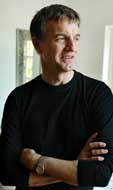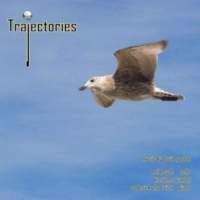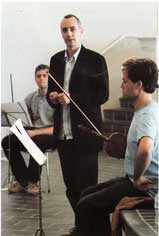|
Finnissy, Fox, Gorton etc
Christopher Redgate, oboe; Kreutzer Quartet etc
Metier msv 28513
Most of this disc of new British works for oboe and ensemble is for far-out modernist afficionados and quite over my head, though there is no denying Christopher Redgate's indefatigable exploration of the infinite possibilities of extended techniques for his instrument (following the example of Heinz Holliger, who was " - - credited with having extended the technical range of the instrument more than any other oboist.")
Many listeners will think these a collection of nasty noises but Carla Rees (an exploratory clarinettist) is enthusiastic about it all. Its title (Finnissy's) is ironic, as the rebartative sounds of his own piece establishes at the outset. Apparently many of them are derived from Mahler, Vivaldi and Beethoven; so be it. Another piece of Finnissy's, Ceci n’est pas une forme, is far more accessible, with a beautifully meandering solo oboe line demonstrating Redgate's expertise at its best.
Christophe Fox's oboe quintet is also one to relish; it evokes Stravinsky and its sectional structure holds the interest.
Musical Pointers needs reviewers with musicological expertise to tackle some of the extreme music which comes our way...
Peter Grahame Woolf
Christopher Fox: Catalogue irraisoné
EXAUDI, cond. James Weeks
Métier MSVCD 92103
Christopher Fox’s Catalogue irraisoné, for solo voice or vocal ensemble, teeters on the edge of music. It consists of the simplest forms almost entirely drained of content and context. Of the 12 short pieces, some are unadorned speech, some simple, nursery rhyme-like melodies, some have sparse percussion accompaniments. There are no harmonies, no expansive tunes, no rhythmic complexities, very little development.
The description ‘catalogue’ is appropriate: each piece seems little more than a precisely annotated index card for something of more weight, housed somewhere else. Their collection hints at an inscrutable culture, with its own rituals and strange art. This is reflected in the restricted, but crucial, concessions to variation, stark switches of parameters like factory robots executing their pre-programmed movements. The listener, as archaeologist, is invited to reconstruct something of this alien world. And only now something sinisterly familiar is traced, first through the texts, sourced from a multilingual array of guidebooks and introductions, then through the titles: ‘Patrol’, ‘Scanner’, ‘Outsider’, Security Code’. This world hides itself behind a peculiar beaurocracy, but its threat still permeates even the most objective utterances.
EXAUDI’s straight-up performances are the only way this music could work. A different performance would try to invest them with weight and significance of their own, something ridiculous, rather than leaving them as pointers to unknown objects. EXAUDI bring the disinterested commitment of the archivist or bibliographer, leaving the mystery and meaning of this music to us to uncover.
Tim Rutherford-Johnson
Trajectories -
The Music of David Gorton
Sonata for Solo Cello (2 versions)
String Quartet: Trajectories
Caprices Nos. 1 & 2 for solo violin
Melting Forms (Piano Trio)
Sonata for Solo Cello
Neil Heyde, Roderick Chadwick &
Peter Sheppard Skaerved (violin)
Kreutzer Quartet
Metier - MSVCD92104
The music of David Gorton first began to receive attention in 2001 with a RPS Composition Prize while still a student. Gorton studied composition with Harrison Birtwistle and Simon Bainbridge. His music is technically demanding for the performers, and for the listener it is complex and challenging too.Most of this disc was prepared at St Ives, where the Kreutzer  Quartet held a residency. Quartet held a residency.
Virtuoso cellist Neil Heyde heads the postgraduate programmes at the Royal Academy of Music, where he focuses on the relationships between performance, composition and analysis. He has commissioned and premiered many solo and chamber pieces and here gives two versions of Gorton's solo sonata; their distinctions will be consequential more for cellists exploring contemporary music than for the general collector.
The string quartet remains as recondite and listener-unfriendly as when first heard at Conway Hall. Peter Sheppard Skaerved provides two small pieces; he can be seen playing one of them on YouTube to help you decide whether this CD might be for you?
Peter Grahame Woolf
Photo Richard Bram: David Gorton, Peter Sheppard Skaerved & Morgan Goff at the Art Gallery, St Ives.
|



